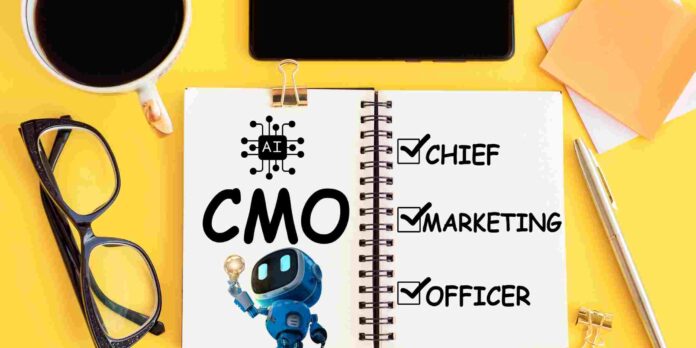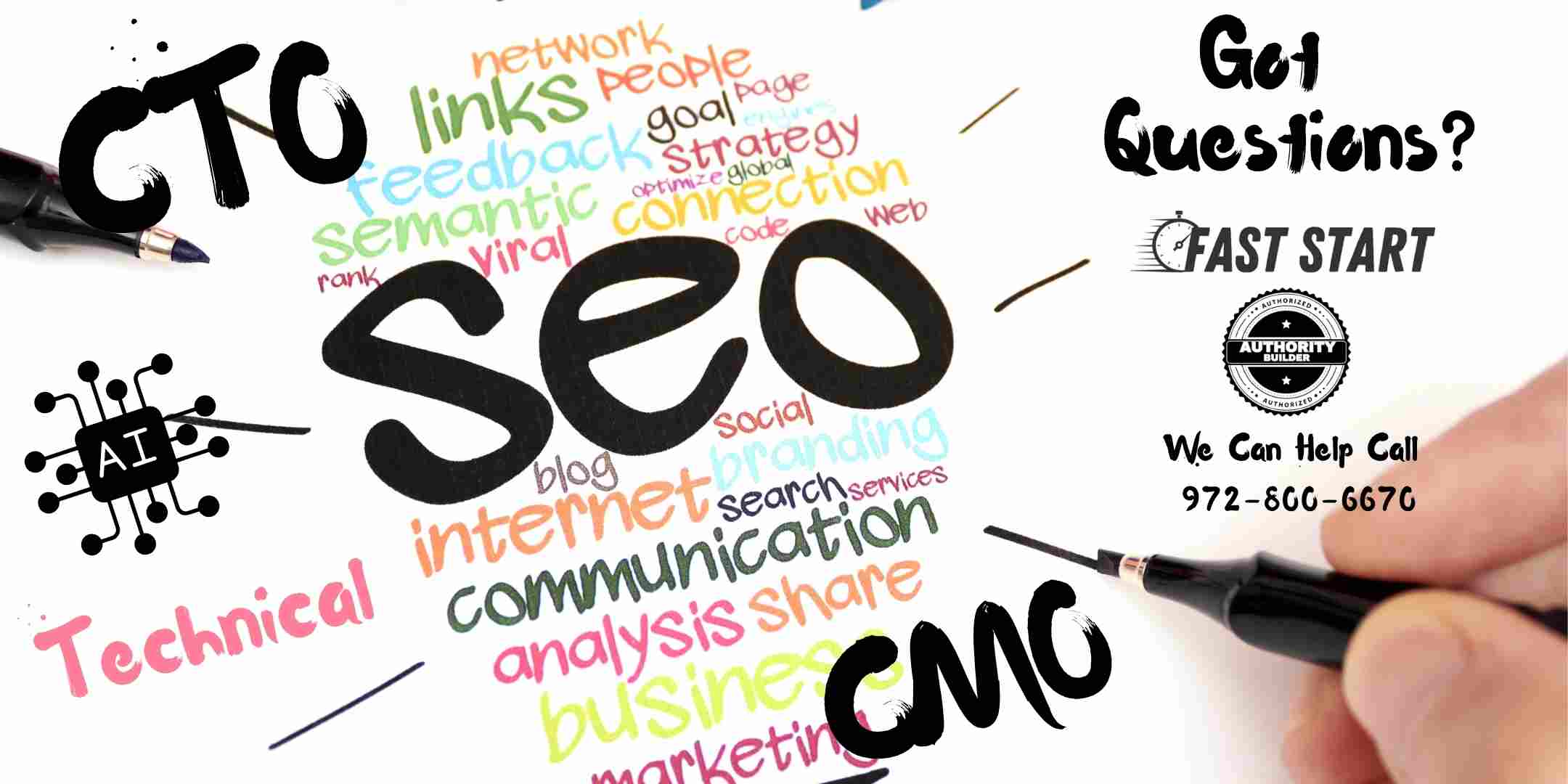What is a Fractional Chief Marketing Officer (CMO)?
A fractional Chief Marketing Officer (CMO) is a senior marketing executive who works with a company on a part-time, contractual, or interim basis. Unlike a full-time CMO, a fractional CMO provides high-level marketing expertise and strategic leadership without the long-term commitment or financial burden of a full-time executive. This role is ideal for companies that need seasoned marketing leadership but may not have the budget, need, or organizational structure to support a full-time CMO.
Roles and Responsibilities of a Fractional CMO
- Strategic Planning: Develop and execute comprehensive marketing strategies aligned with the company’s business goals.
- Brand Management: Enhance and maintain the company’s brand identity and positioning in the market.
- Market Research: Conduct market analysis to identify opportunities, trends, and competitive landscapes.
- Campaign Management: Oversee the creation, execution, and performance of marketing campaigns across various channels.
- Team Leadership: Lead and mentor the marketing team, providing guidance and fostering professional growth.
- Budget Management: Allocate and manage the marketing budget to ensure optimal use of resources.
- Performance Metrics: Establish and track key performance indicators (KPIs) to measure the success of marketing initiatives.
- Digital Marketing: Develop and implement digital marketing strategies, including SEO, social media, email marketing, and content marketing.
- Customer Engagement: Enhance customer acquisition, retention, and loyalty through targeted marketing efforts.
How to Get the Most Out of a Fractional CMO
To maximize the benefits of hiring a fractional CMO, companies should follow these best practices:
1. Clearly Define Goals and Expectations
- Set Clear Objectives: Outline specific, measurable, achievable, relevant, and time-bound (SMART) goals for the fractional CMO.
- Align on KPIs: Agree on key performance indicators (KPIs) to track progress and measure success.
- Communicate Expectations: Ensure that both parties have a clear understanding of the role, responsibilities, and expected outcomes.
2. Provide Access to Resources and Information
- Internal Resources: Give the fractional CMO access to necessary internal resources, including the marketing team, tools, and budget.
- Company Data: Share relevant company data, historical performance metrics, and market research to inform strategy development.
- Stakeholder Access: Facilitate introductions and regular communication with key stakeholders across the organization.
3. Foster Collaboration and Integration
- Team Integration: Integrate the fractional CMO into the existing team to foster collaboration and ensure alignment with overall business goals.
- Regular Meetings: Schedule regular meetings to discuss progress, address challenges, and refine strategies.
- Cross-Functional Collaboration: Encourage collaboration between the fractional CMO and other departments, such as sales, product development, and customer service.
4. Leverage Their Expertise
- Strategic Insights: Utilize the fractional CMO’s expertise to gain strategic insights and recommendations for improving marketing performance.
- Innovative Approaches: Be open to innovative ideas and approaches that the fractional CMO may bring from their diverse experience.
- Professional Development: Encourage the fractional CMO to mentor and develop the existing marketing team, enhancing their skills and capabilities.
5. Monitor and Adjust
- Performance Tracking: Regularly review performance metrics to assess the effectiveness of marketing initiatives.
- Flexibility: Be flexible and willing to adjust strategies based on performance data and market changes.
- Feedback Loop: Establish a feedback loop to continuously improve collaboration and strategy execution.
What Does a Fractional CMO Agency Do?
A fractional CMO agency provides businesses with access to high-level marketing leadership and strategic expertise on a part-time, contractual, or interim basis. These agencies are designed to offer the benefits of an experienced Chief Marketing Officer without the need for a full-time commitment. They typically serve small to medium-sized businesses, startups, or larger organizations looking for specialized marketing leadership for specific projects or periods of transition.
Services Offered by a Fractional CMO Agency
1. Strategic Marketing Planning
- Market Analysis: Conduct in-depth market research to understand industry trends, competitor activities, and customer behavior.
- Strategy Development: Formulate comprehensive marketing strategies that align with business objectives and target market needs.
- Positioning and Messaging: Develop clear brand positioning and messaging frameworks to ensure consistent communication across all channels.
2. Brand Management
- Brand Identity: Create or refine the brand identity, including logo design, brand guidelines, and visual assets.
- Brand Positioning: Establish and maintain a strong brand positioning in the market to differentiate from competitors.
- Rebranding: Manage rebranding initiatives to refresh or reposition the brand as needed.
3. Digital Marketing
- SEO (Search Engine Optimization): Optimize website content and structure to improve search engine rankings and drive organic traffic.
- PPC (Pay-Per-Click) Advertising: Plan and execute paid search campaigns to generate targeted traffic and leads.
- Content Marketing: Develop and distribute valuable, relevant content to attract and engage target audiences.
- Social Media Marketing: Manage social media profiles, create engaging content, and run targeted campaigns to build a strong online presence.
- Email Marketing: Design and implement email marketing campaigns to nurture leads and drive conversions.
4. Campaign Management
- Campaign Planning: Develop and execute multi-channel marketing campaigns to achieve specific business goals.
- Creative Development: Produce compelling creative assets, including copywriting, graphic design, and video production.
- Performance Tracking: Monitor and analyze campaign performance to optimize results and ROI.
5. Lead Generation and Conversion Optimization
- Lead Generation: Implement strategies to generate high-quality leads through various online and offline channels.
- Conversion Rate Optimization (CRO): Analyze user behavior and optimize landing pages, websites, and sales funnels to increase conversions.
6. Marketing Technology and Automation
- Technology Assessment: Evaluate and recommend marketing technology tools and platforms to streamline operations and improve efficiency.
- Marketing Automation: Implement and manage marketing automation systems to automate repetitive tasks and improve lead nurturing processes.
7. Customer Relationship Management (CRM)
- CRM Strategy: Develop and implement CRM strategies to improve customer retention and loyalty.
- CRM Integration: Integrate CRM systems with marketing and sales platforms to ensure seamless data flow and customer insights.
8. Public Relations (PR) and Communications
- PR Strategy: Create and execute public relations strategies to build and maintain a positive brand image.
- Media Relations: Manage relationships with media outlets, pitch stories, and secure media coverage.
- Crisis Management: Develop crisis communication plans to handle potential PR issues and protect the brand’s reputation.
9. Team Leadership and Development
- Team Building: Assist in building and structuring the marketing team to ensure it meets business needs.
- Training and Development: Provide training and mentorship to develop the skills and capabilities of the marketing team.
- Interim Leadership: Offer interim CMO leadership during periods of transition or while searching for a permanent CMO.
10. Performance Measurement and Reporting
- KPI Development: Establish key performance indicators (KPIs) to measure the success of marketing initiatives.
- Analytics and Reporting: Regularly analyze marketing data and provide detailed reports to track progress and inform decision-making.
- ROI Analysis: Evaluate the return on investment (ROI) of marketing activities to ensure resources are being used effectively.
Finding and Hiring a CMO: Pre-Hire Questionnaire and Checklist
Finding a CMO
- Define Your Needs
- Determine the scope of the CMO’s responsibilities.
- Decide whether you need a full-time, part-time, or fractional CMO.
- Identify Candidates
- Internal Referrals: Ask for recommendations from colleagues and industry peers.
- Professional Networks: Utilize LinkedIn and other professional networks to identify potential candidates.
- Recruitment Agencies: Engage specialized executive search firms that focus on marketing leadership roles.
- Industry Events: Attend conferences, webinars, and industry events to network with potential candidates.
- Screen Candidates
- Review resumes and LinkedIn profiles.
- Conduct initial phone screenings to assess fit and interest.
Hiring a CMO
- Interview Process
- Initial Interviews: Conduct interviews with HR and key stakeholders to assess cultural fit and general qualifications.
- Technical Interviews: Arrange for interviews with senior marketing team members to evaluate technical expertise and strategic thinking.
- Final Interviews: Involve top executives to ensure alignment with company vision and goals.
- Assessment
- Case Studies: Ask candidates to present a marketing strategy for a hypothetical or real scenario related to your business.
- References: Check references to verify past performance and gather insights from previous employers.
- Offer and Negotiation
- Extend a formal job offer outlining compensation, benefits, and expectations.
- Negotiate terms as necessary to reach a mutually agreeable arrangement.
Pre-Hire Questionnaire
To evaluate potential CMOs thoroughly, consider asking the following questions:
Strategic Vision and Leadership
- Experience and Background
- Can you describe your experience with developing and executing comprehensive marketing strategies?
- How have you adapted your marketing strategies to changing market conditions or company goals?
- Strategic Thinking
- How do you prioritize marketing initiatives in alignment with business objectives?
- Can you provide an example of a successful marketing campaign you led from concept to execution?
Technical Skills and Expertise
- Digital Marketing
- What is your experience with SEO, PPC, content marketing, and social media?
- How do you measure and optimize digital marketing performance?
- Analytics and Data-Driven Decision Making
- How do you use data to inform your marketing strategies and decisions?
- Can you provide examples of how analytics have driven changes in your marketing approach?
Team Leadership and Development
- Team Management
- How do you build and manage high-performing marketing teams?
- Can you describe a time when you had to resolve a conflict within your team?
- Mentorship and Development
- How do you foster professional growth and development within your marketing team?
- What strategies do you use to keep your team motivated and aligned with company goals?
Brand and Market Positioning
- Brand Management
- How have you successfully repositioned a brand in the market?
- Can you provide examples of how you’ve managed a brand crisis?
- Market Research and Customer Insights
- How do you conduct market research to understand customer needs and preferences?
- How have customer insights influenced your marketing strategies?
Pre-Hire Checklist
- Initial Screening
- Review resumes and profiles.
- Conduct initial phone interviews.
- Interview Process
- Schedule and conduct multiple rounds of interviews.
- Use the pre-hire questionnaire to guide discussions.
- Assessment and Evaluation
- Assign case studies or practical tasks.
- Evaluate presentation and strategic thinking abilities.
- Reference Checks
- Contact provided references.
- Verify past performance and gather feedback.
- Decision-Making
- Review interview feedback and assessment results.
- Conduct final evaluations with key stakeholders.
- Offer and Onboarding
- Extend a formal job offer.
- Plan a comprehensive onboarding process.
By following this structured approach and utilizing the pre-hire questionnaire and checklist, you can effectively identify, evaluate, and hire a CMO who aligns with your company’s goals and vision.
Fractional interim part-time CMO/CTO/CRO Combo
Finding one person to act as your Fractional interim part-time CMO/CTO/CRO Combo is like finding a Unicorn. But leveraging the C-Suite Network MarketPlace you can do just that!






